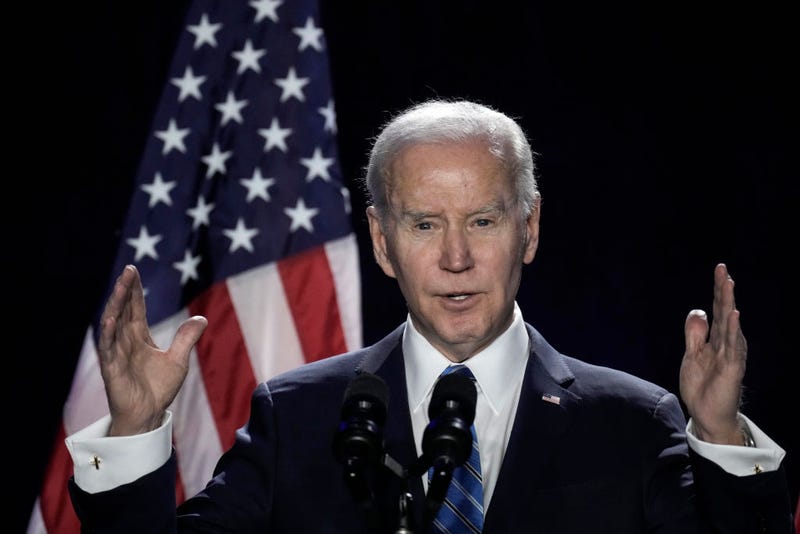
President Joe Biden signed a new National Security Memorandum Thursday to “counter weapons of mass destruction terrorism and advance radioactive material security worldwide.”
According to a fact sheet from the White House, it is a “comprehensive new strategy,” to protect the nation.
Weapons of mass destruction are described as “nuclear, radiological, chemical, biological, or other device that is intended to harm a large number of people,” by the U.S. Department of Homeland Security.
Data from the Federation of American Scientists indicates that, as of last year, the Russian Federation had the world’s largest stockpile of nuclear weapons at 5,977, followed by the U.S. with 5,428. Other countries with stockpiles include China (350), France (290), the U.K. (225), Pakistan (165), India (160), Israel (90) and North Korea (20).
“Nuclear weapons are the most dangerous weapons on earth,” according to the United Nations Office for Disarmament Affairs. “One can destroy a whole city, potentially killing millions, and jeopardizing the natural environment and lives of future generations through its long-term catastrophic effects. The dangers from such weapons arise from their very existence.”
While the U.S. has been decreasing its nuclear stockpile, many other nations are increasing their stores of nuclear weapons. The Federation of American Scientists said that the global stockpile is still at a “very high level.”
“Although significant progress has been made in the reduction and elimination of WMDs, and weapons usable materials around the world, we must remain vigilant and drive further progress to mitigate the range of challenges posed by WMD terrorism at home and abroad, including those posed by new and emerging technologies,” said the White House.
Three goals guide the policies announced Thursday, and the first is to counter terrorism that utilizes weapons of mass destruction. Policies related to this goal call for the U.S. to: prevent non-state actors from acquiring WMD and related materials; detect and disrupt WMD terrorism threats; deter and prevent actors from supporting WMD terrorism; degrade and eliminate WMD-related capabilities of non-state actors; enhance resilience and recovery from WMD terrorism events; enhance capabilities to anticipate and manage emerging technology that could enable WMD terrorism threats; build domestic partner capabilities to counter WMD terrorism; and enhance international collaboration to counter WMD terrorism.
Policies aligned with the second goal – to advance nuclear material safety – call for the country to: minimize the production and retention of weapons-usable nuclear materials to only those quantities required to support vital national security interests; refrain from the use of weapons-usable nuclear material in new civil reactors or for other civil purposes unless that use supports vital U.S. national interests; focus civil nuclear research and development on approaches that avoid producing and accumulating weapons-usable nuclear material and enable viable technologies to replace current civil uses of these materials; dispose of nuclear material that is in excess to national security or civil needs in a safe and secure manner; promote safe nuclear material management policies and best practices internationally and encourage adoption of analogous policies with international partners and organizations, and more.

Additionally, policies were announced aligned with a goal to advance radioactive material safety. These are to: maintain robust security for all high-activity radioactive sources during their lifecycle for all sources that cannot be replaced; encourage the replacement of source-based devices with non-radioisotopic alternative technologies, where technically and economically feasible, and continue support for research and development of alternative technologies; permanently dispose of or recycle disused and unwanted high-activity radioactive sources, and more.
“Together with our domestic and international partnerships, these policies will continue to advance longstanding efforts to prevent proliferation and to counter and reduce threats of WMD terrorism at home and abroad,” said the White House.


